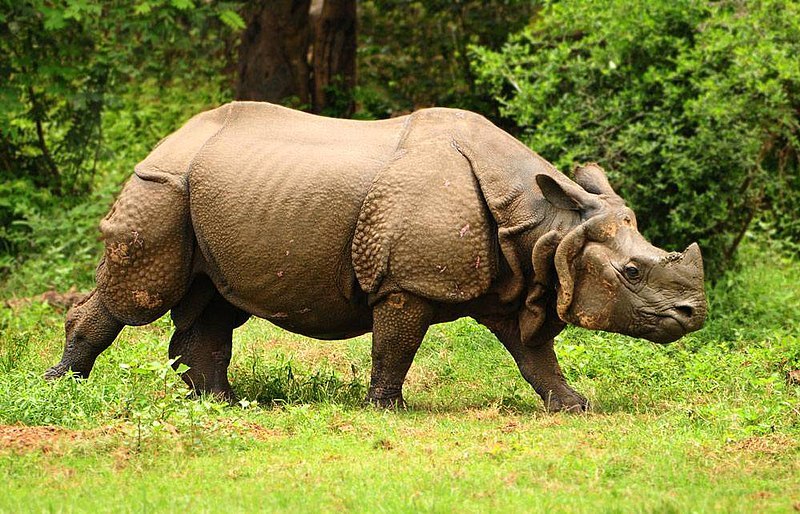Kaziranga: In a significant step for wildlife conservation, the genetic analysis of rhino horn samples, a remnant of Assam’s historic 2021 mass destruction, has officially begun. This crucial process aims to bolster scientific understanding of the rhino population and enhance efforts to combat wildlife crime.
The initiative follows Assam‘s bold decision to verify and destroy 2,479 rhino horns on September 22, 2021. This unprecedented event, which publicly debunked myths surrounding rhino horn value, was the culmination of a meticulous reconciliation of 2,623 horns stored across various treasuries and Forest Department offices in Assam.
Only horns with unique characteristics or those involved in ongoing court cases were spared from the flames.
During the reconciliation, a small sample was carefully retained from each horn for future genetic and chemical studies. During July 3 to 8 2025, the process began at Kaziranga by a specialized team appointed by the Chief Wildlife Warden in the presence of independent observers to verify and segregate the stored samples and packed for genetic analysis at Wildlife Institute of India.
A total of 2,573 samples were verified and repackaged into small vials for transport to the Wildlife Institute of India (WII). The team carried out the works as per an approved protocol provided by the Chief Wildlife Warden of Assam.
The entire technical process was recorded and observed by independent experts and media persons nominated into the committee. A subset of samples has also been set aside for future chemical analysis.
The DNA analysis will be conducted at the WII genetics laboratory, a key facility for the RhoDIS India program, under the supervision of Dr. Samrat Mondol. The primary goal is to establish individual DNA profiles for each horn, integrating them into the RhoDIS India DNA data library. Further analysis will also investigate any changes in STR (Short Tandem Repeat) allele frequency over the years, providing valuable insights into the genetic history of rhino populations across Assam.
The protocol standardized for the RhoDIS India analysis that has been approved by the Ministry of Environment Forest and Climate Change (MoEFCC) will be followed for creating of the DNA profiles from these samples.
The RhoDIS India program was field initiated in India since 2016 as a collaboration between the MoEFCC, the rhino bearing states of India, Wildlife Institute of India (WII) and WWF India.
ALSO READ: Govt to open 80 more model schools in tea garden areas: Assam CM
The RhoDIS India program is working on two broad objectives, one to improve the crime investigations scientifically and the second is to provide technical support for scientific management of the rhino population in India.















